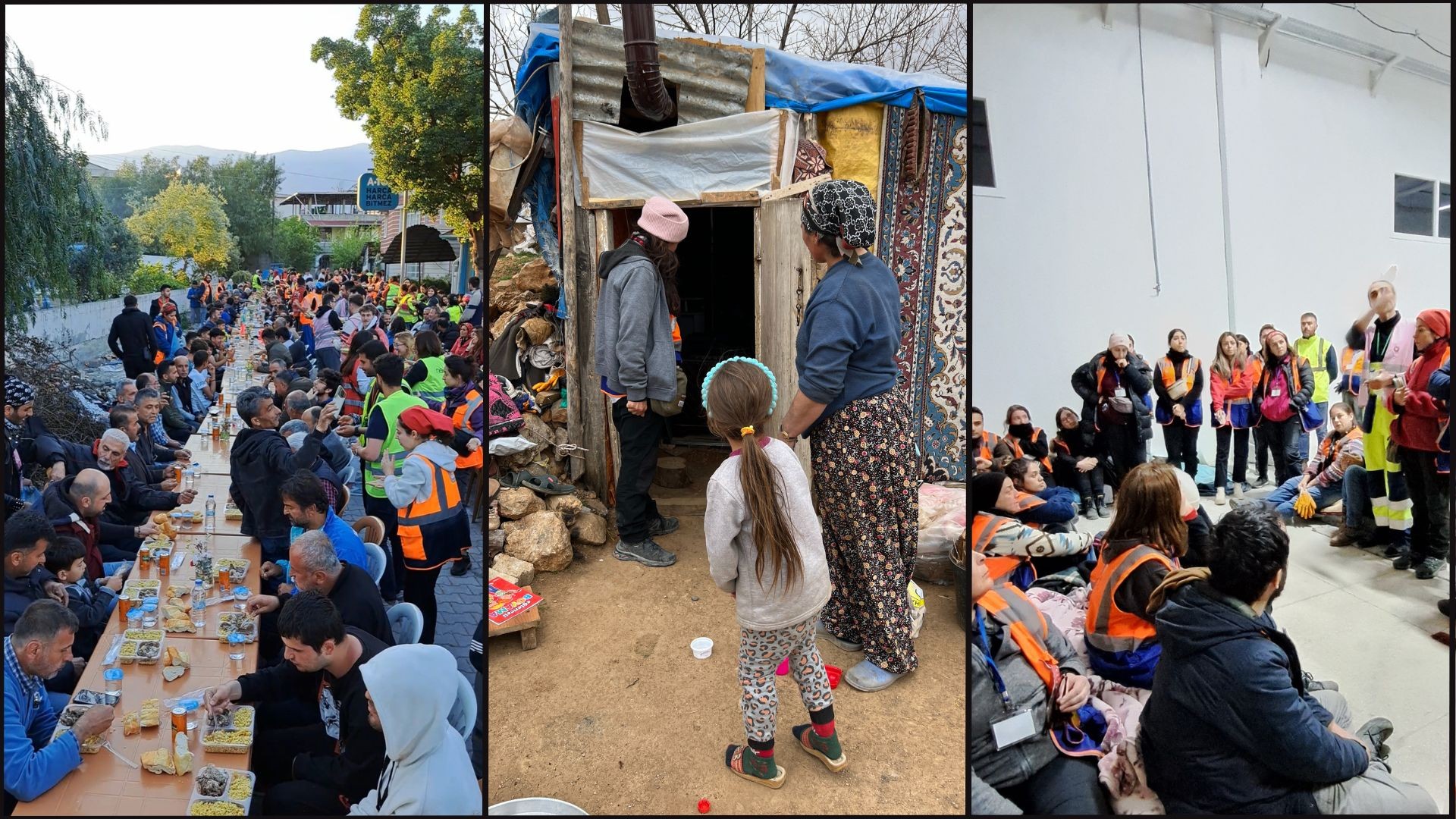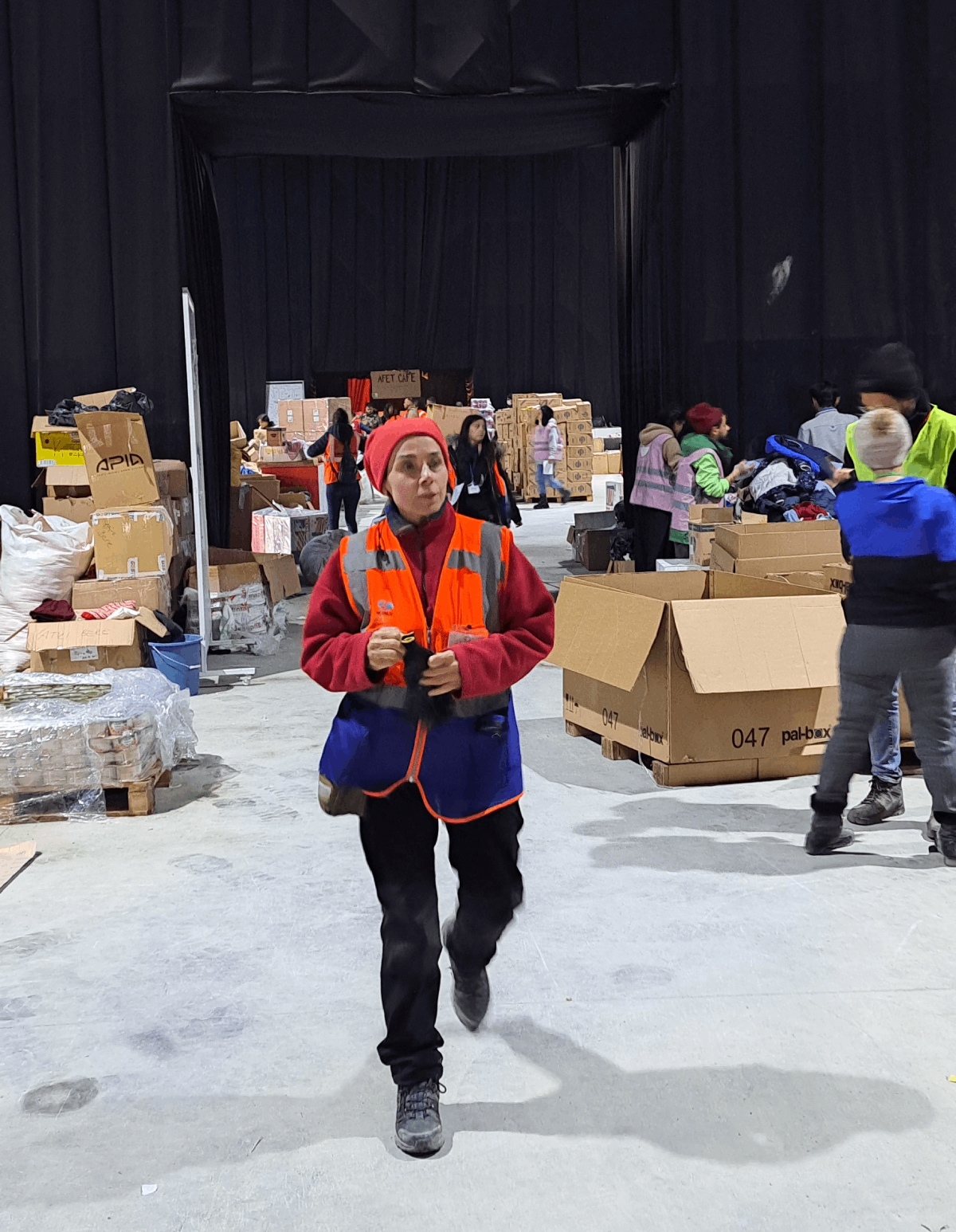Rising from the Rubble Vol III: Unveiling the Human-Made Disaster
The third story from the panel on "Rising from the Rubble Vol I: Documenting Earthquake's Impact and Emphasizing Collaborative Reconstruction Efforts."

Read the first two stories in the series
On February 6, Turkey was struck by two devastating earthquakes that claimed tens of thousands of lives and left over two million people displaced. In the aftermath of this tragedy, civil society organizations, artists, volunteers and activists have played a critical role in the coordination of relief efforts and the mobilization of resources to support those affected.
Over the course of the webinar, the speakers shared their personal experiences. In this piece, Ayten Zara, a clinical psychologist and trauma expert, shares her personal experiences while providing humanitarian and psychosocial aid, and sheds light on the immense challenges faced in the wake of the disaster.
Ayten Zara, a clinical psychologist, trauma expert, the founder of World Human Relief, and an associate professor of psychology at Bilgi University, emphasized that the earthquakes were not merely natural disasters but also humanitarian crises that traumatize the affected populations. Having worked in places like Haiti, she drew upon her extensive experience in trauma intervention to underscore how the severity of the trauma correlates with the extent of losses endured.
“Whether it is due to a man-made disaster or a natural disaster,” said Zara, “the more losses we have, the higher the trauma we experience.”
As a member of the funding organizations of the Afet Platformu (Disaster Platform) – a cohesive civil society network founded in 2020 to bring together key NGOs and stakeholders – Zara explained that she was at the disaster zone at very early stages and touched upon the initial disorganization of relief efforts and the urgent need to establish effective systems for aid distribution.
Adding that the situation they encountered when arriving in Hatay showed how disorganized the efforts was, Zara said, “We initially did not know what to do too, but later on, we started classifying all the aid that was received and devised certain systems to distribute it.”
The scarcity of essential supplies, such as blankets and tents, posed a grave challenge. Despite the shortage, Zara and her team worked tirelessly to provide shelter, food, and warmth to those in need. However, the demands often surpassed the available resources, adding immense stress to the relief workers. Nonetheless, they remained dedicated to offering both humanitarian and psychosocial support throughout the crisis.
“Every tent we found was given to the people, including those in rural parts of the cities, and we helped them set up the tents," she said. "We also set up stove systems because these people needed warmth.”
Highlighting the complexity of the disaster, Zara stressed that the earthquakes that hit Turkey were not solely a natural calamity but also a human-made catastrophe. She expressed her concerns over the inadequate equipment available to rescue individuals trapped under the rubble, leading to further loss of life. Zara shared poignant images, revealing the anguish of families who had made makeshift homes by the debris, desperately hoping to rescue their loved ones. She emphasized the lasting impact such experiences would have on the affected individuals and future generations.
Zara acknowledged that the recovery process would be long and arduous. While most organizations focused primarily on providing immediate relief, such as shelter, food, and tents, there were ongoing challenges in reaching rural areas with essential supplies. The scarcity of clean water and the spread of contagious diseases added to the plight of the affected communities. Despite these hurdles, Zara and her team remained committed to their mission, working to deliver aid and psychosocial support to those in need.

Zara also highlighted the resilience and resourcefulness displayed by the affected communities. In one instance, she shared a photograph of a village where women had constructed shelters using recycled materials. These communities, despite their hardships, demonstrated determination and strength as they navigated the initial stages of recovery. Zara emphasized the importance of social support during the early phases of rescue and later transitioned to focusing on recovery and psychological healing.
Referring to the well-being of the volunteers who worked tirelessly in the earthquake zone, Zara emphasized the significance of comprehensive preparation, including one-week training sessions to equip them with the necessary skills to cope with the challenges they might encounter. Regular debriefings and post-mission support were provided to ensure the volunteers' emotional well-being and successful reintegration into their normal lives.
“This is not only a natural disaster,” underlined Zara once again. “There are different types of destruction – one was the earthquake.” For Zara, another destruction followed later: “Many people were still alive under the rubble, and their loved ones tried to take them out. However, there were not enough equipment to rescue them, so many people were killed after the earthquake. This is why this should not only be considered as a natural disaster but also a human-made disaster.”
Ayten Zara's invaluable insights shed light on the magnitude of the tragedy that befell Turkey during the devastating earthquakes. Her experience as a trauma expert and humanitarian aid worker emphasized the importance of recognizing the psychological impact on survivors and the significance of comprehensive support systems. Despite the immense challenges faced, Zara's dedication, along with the efforts of organizations like World Human Relief, continues to provide crucial assistance to the affected communities as they rebuild their lives and strive towards a safer future.